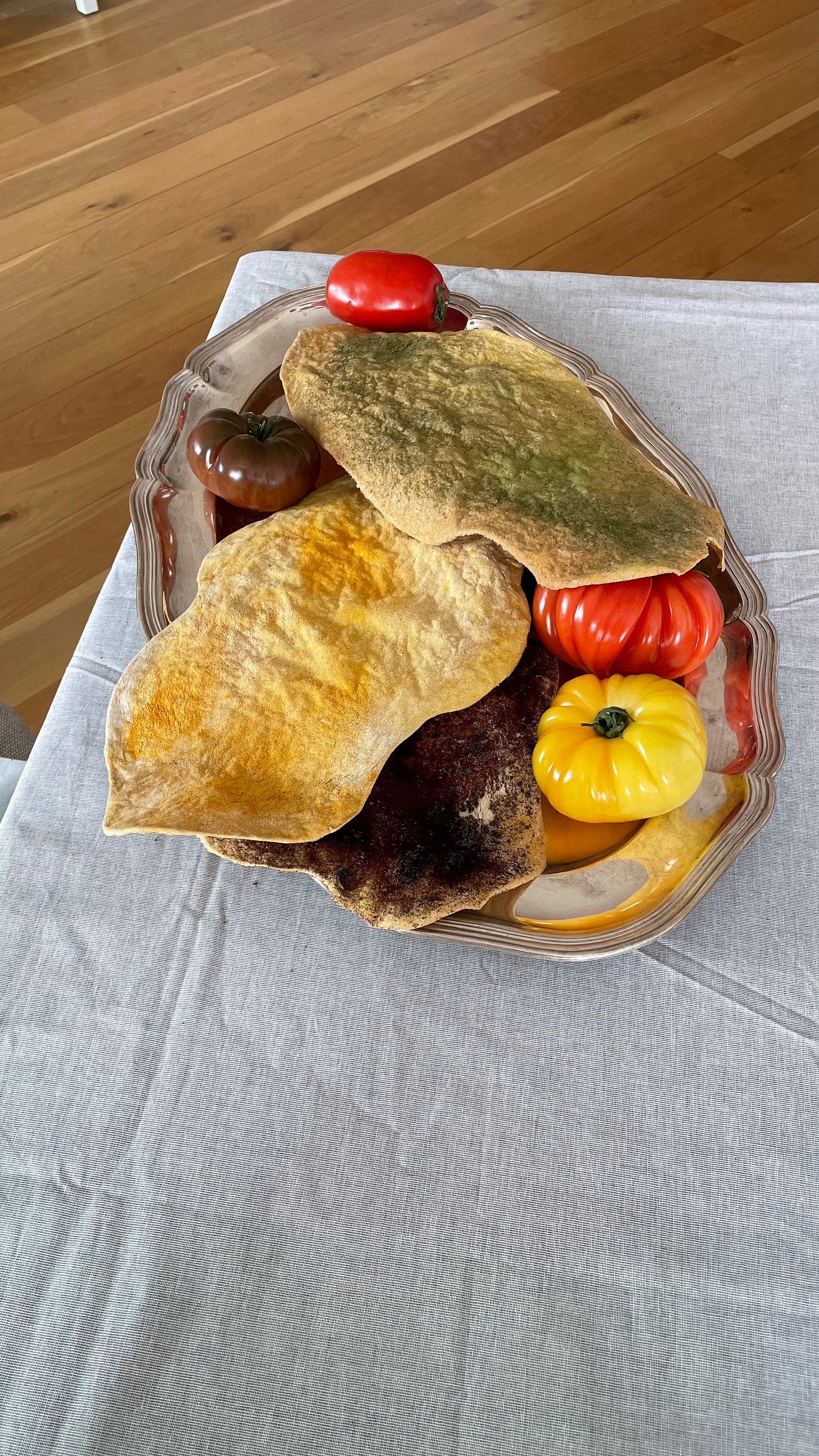Words that lose their humour when explained in another language… Cultures that lose their essence when transplanted to another country… The voluntary solitude… Wordlessness that comes with it. The urge to write that emerges from all of this… In other words, the tomato paste. Without referencing the umami taste of the early 19th century. Without tying it to ancient Rome or any form of fermentation. Simply as part of a natural evolution. We. Migrants. All of us, pepper and eggplant-like tomatoes in a vast city. We poisoned. We were poisoned. We crushed. We were crushed. We became ‘salça’ to other cultures…
I actually just wanted to talk to you about tomato and pepper pastes ( aka salça in Turkish). But to do that, I need to take you back to my childhood, to a house in Istanbul which I don’t remember exactly where it is. We probably need to peek through the doorway into my mother’s kitchen. From the gap in the door, you can see them pressing little pieces of dough together called ‘mantı’, stuffing them with ground beef. My aunt is there, and they’re chatting—intensely, passionately. Probably arguing about a recipe…
Suddenly, I jump in, touch the dough, interrupt their conversation, and annoy them. And then, in that moment, I turn into salça. I freeze, just like Andy Warhol’s tomato soup print.
‘How did I turn into salça? When did this happen? Am I pepper? Or Tomato? Spicy or not?’
With my small, slightly wrinkled brain, I go on with my life without thinking too deeply about it.
I grow up.
Being “salça” means getting involved, interrupting, inserting yourself into things…
When tomatoes first arrived into the Old World from the New, they were thought to be poisonous. For nearly two centuries, they struggled to find their place in the kitchen. Now, you can hardly make a Turkish dish without tomatoes. A restaurant without tomato or pepper salça can barely survive. It’s an ingredient that sneaks into everything! Like a mischievous child.
Fast forward about twenty years, and I—who once turned into salça in that kitchen—decide to migrate to Denmark, where I knew absolutely no one.
Moving to a country with nothing but a suitcase and a handful of memories is a voluntary solitude. I realized this much later. But the cultural shift excites me beyond measure. Every day, I learn something new. The more I pick up bits of the language, the more I understand the people. I begin to see how the jobs they have define them, what they value, and what truly matters in life.
After three years, I had a huge realization: The most meaningful thing in life is simply sitting at a table with the people you love for hours.
Look, I’m not talking about food. It doesn’t really matter what you eat. What matters is sitting there for hours, looking into someone’s eyes, truly talking. Pure, unfiltered, minimalist conversations…
And at that moment, the thought of being salça came back to me.
Years later, as a migrant, I find myself among hundreds of other migrants I’ve met along the way, all trying to carve out a space for ourselves in unfamiliar lands. We poke at the flow of Danish conversations, inserting ourselves into their lives. But not in a bad way—because, you know, tomatoes have this incredible umami flavor. And in the end, everyone got used to tomatoes. But the real issue here is this: while trying to adapt, we often disappear. Because all we have are the memories we carry with us. The rest slowly slips away. When we don’t use them, they rust, along with all our stories…
And so, as a migrant tomato salça, I’ve decided to write. From now on, here.
If there’s anyone out there who feels like a potato, coffee bean, or chocolate…A migrant to the core. Someone who tries to share their culture and memories they once knew but gets lost in the chaos of languages.
You are not alone.
May the fruitfulness of tomatoes be with you always.
Sincerely
Nesrin Eren





